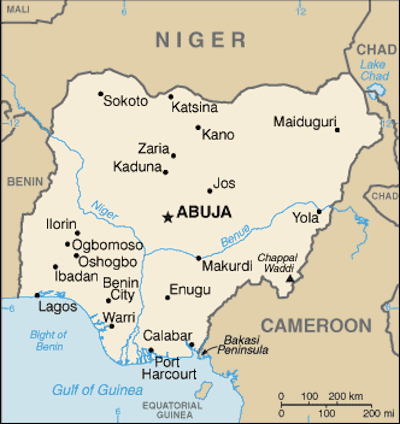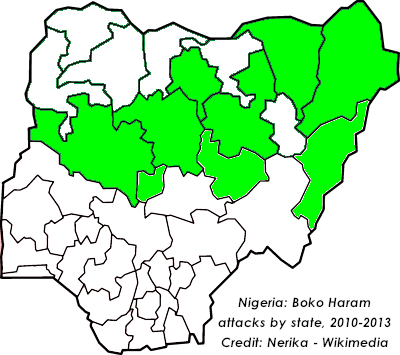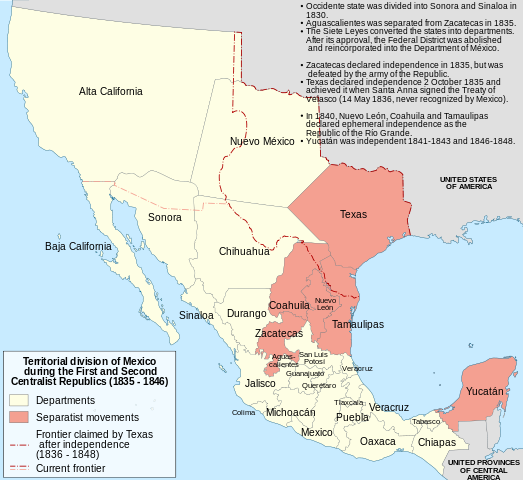
If you want to see a multi-national popular pressure / “awareness” campaign that has actually made a difference, you’ll want to check out the #BringBackOurGirls effort all over social media in the United States and Nigeria.
The northern Nigerian separatist extremist group “Boko Haram” — background briefing here — recently kidnapped over two hundred girls from a boarding school as child brides for their members and sympathizers (and as a source of revenue). The Nigerian government, which has been more or less overwhelmed in the face of wave after wave of massive terrorist attacks by Boko Haram in the past several years, initially responded with relative indifference — essentially writing off the girls as just more unrecoverable casualties of the terrorists.
This prompted very justified outrage within the country — which is Africa’s largest economy, most populous nation, and the biggest power in West Africa — and within the major Nigerian diaspora population in the United States. This led to the creation of the #BringBackOurGirls campaign targeting three groups of people: Nigerian government officials, U.S. media and celebrities, and U.S. officials. After a slow start at the beginning, it caught fire and has gone viral. Tonight in particular, it is finally blowing up on Twitter, especially among celebs, although fortunately the two governments had begun grinding into action already.
The first and third groups of people are, of course, the ones most empowered to do something about the situation. But the celebs and U.S. media are key in force-multiplying the pressure on the U.S. officials. And that’s what we’ve finally seen happen, at very high levels.
Reversing course, Nigeria’s government and (very sizable) military have vowed to make an active effort to rescue the kidnapped girls — which is a huge improvement over the plan to do nothing.
And rather than ignoring the situation (or trying to find a way to bomb the problem away), the U.S. government is making specific and useful commitments to help bring the girls back, by sending a team of experts in hostage negotiation and recovery. According to Thompson Reuters reporting:
State Department spokeswoman Jen Psaki said the American embassy in Nigeria is “prepared to form a coordination cell” that would include U.S. military personnel and law enforcement officials with expertise in investigations and hostage negotiations.
The U.S. “coordination cell” also would include people who could provide expertise on providing victim assistance, Psaki said.
It’s a reasonably small and easy commitment to make but it could make a very real difference.
Keep up the pressure. This effort has affirmed, in my mind, that a persistent social media campaign with clear, narrow, and specific goals to mobilize government resources in multiple countries is possible. And it’s a much worthier cause than some of the other viral campaigns we’ve seen.
Unfortunately, the New York Times reported today that Boko Haram has kidnapped more girls in a new, smaller attack. Let’s hope the U.S. effort will result in everyone coming home as safely as possible.
Beyond that and the immediate Nigerian government response, the only true countermeasure in the long-term to the overall terror campaign raging across northern Nigeria will be to inject substantially more development aid and investment into the country’s north. That can provide jobs to disaffected and disenfranchised potential recruits, discouraging them from joining such terrible organizations.
Want to put names to the numbers? Here are 180 names of those girls kidnapped in Nigeria in the initial attack.



 Thailand high court pulls a
Thailand high court pulls a 



 Following another round of bigoted tweets from Boston Bruins fans,
Following another round of bigoted tweets from Boston Bruins fans,  Pfizer, founded in the United States in 1849, is trying to buy AstraZeneca, one of its biggest global rivals. Reportedly, and quite bizarrely, the main purpose of this transaction is so it can reincorporate in the United Kingdom — and thus reduce its tax “burden” as well as access “trapped” overseas cash.
Pfizer, founded in the United States in 1849, is trying to buy AstraZeneca, one of its biggest global rivals. Reportedly, and quite bizarrely, the main purpose of this transaction is so it can reincorporate in the United Kingdom — and thus reduce its tax “burden” as well as access “trapped” overseas cash.